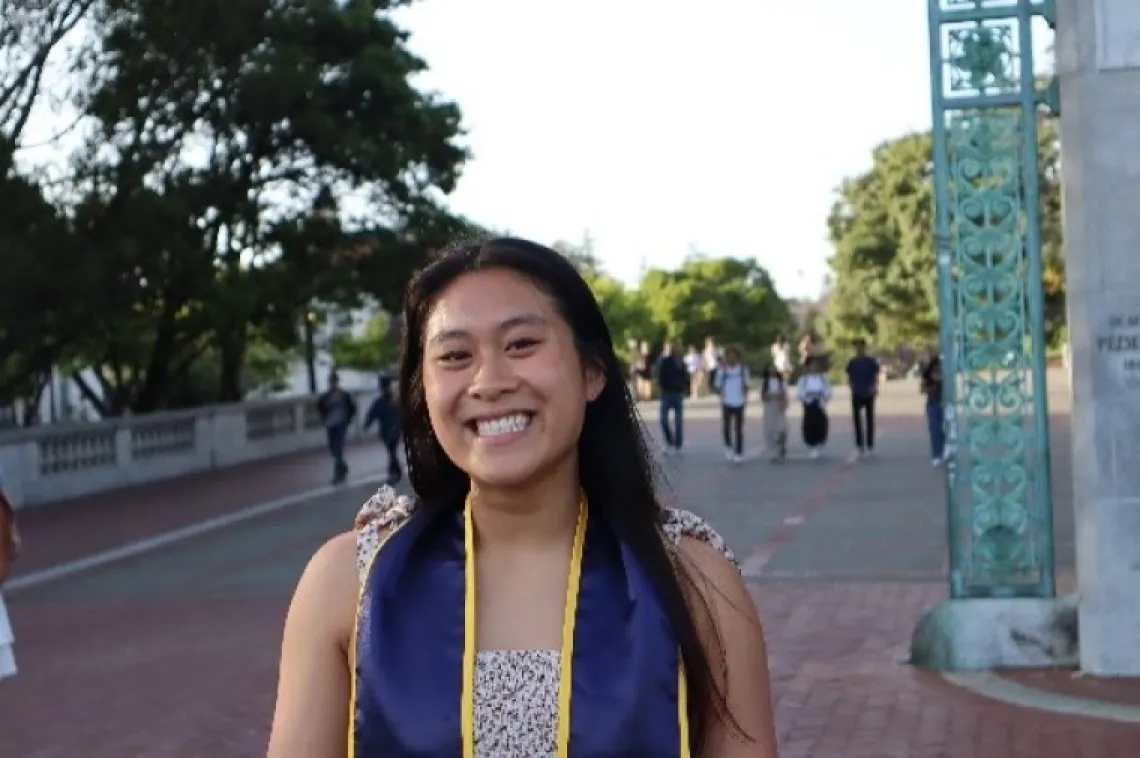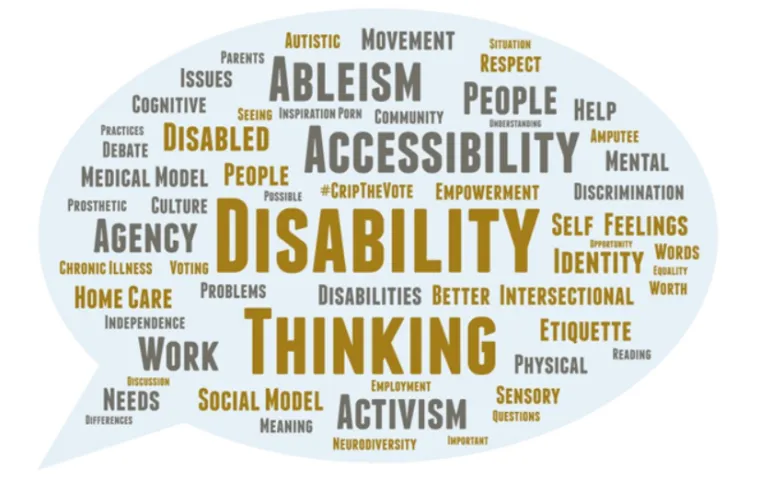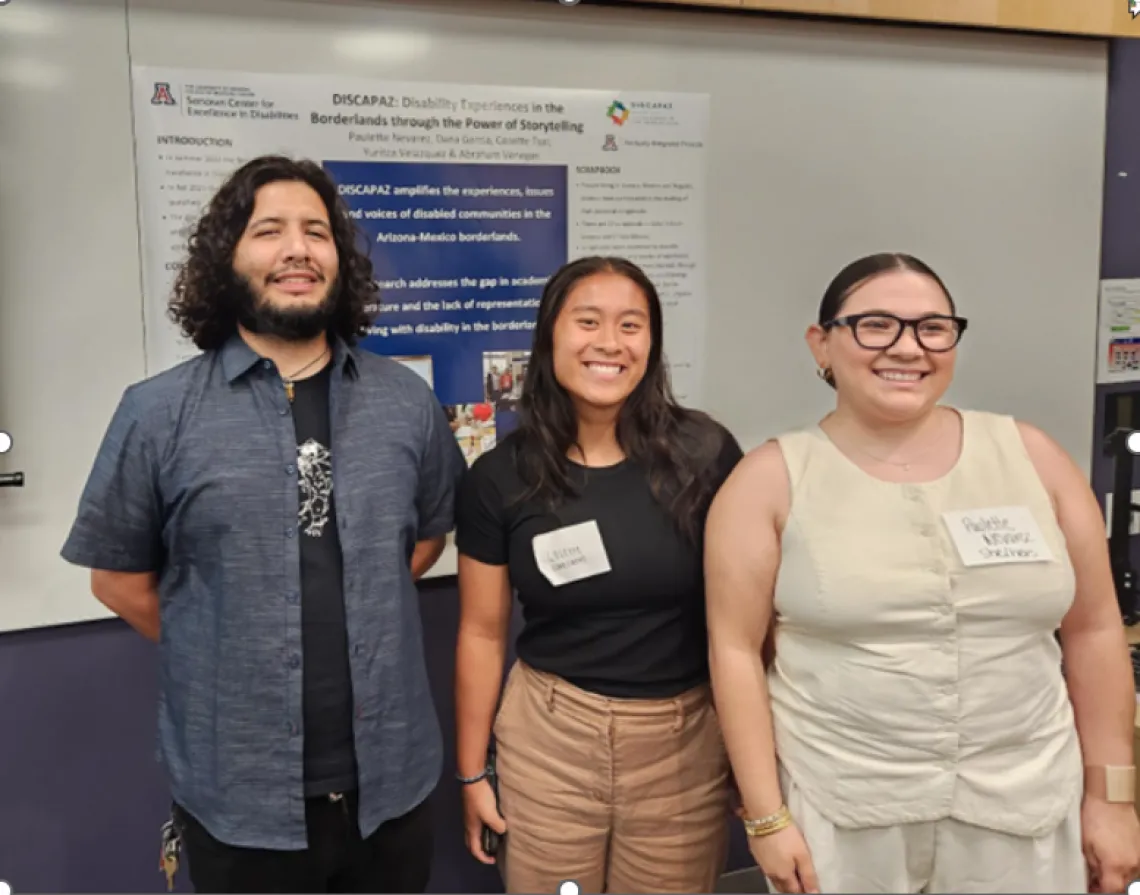The CACTI Blog: The Missing Piece of Representation in Intersectional Experiences of Disability

By Cosette Tsai, 2023-2024 DISCAPAZ VIP Research Program
There is limited representation of the diverse intersectional experiences of the disability community. Intersectionality is a way of understanding different aspects of a person’s identity — such as their ethnicity, gender, disability, and socioeconomic status — that intersect and overlap to create a unique experience of disadvantages and privilege for an individual. Growing up in an immigrant Taiwanese-American household, there was a lack of media representation and community support that reflected my family’s experiences and challenges, especially in supporting my brother who has Angelman Syndrome. Angelman Syndrome is considered an intellectual disability that leads to challenges like epilepsy, developmental delays, and difficulties in speech and motor skills.
The lack of representation led to our family becoming isolated, especially when it came to accessing resources and support for my brother. Also, as caregivers, there was no guide on how to navigate the healthcare, education, and disability community while taking care of ourselves. My parents became the biggest advocates for my brother so he could access spaces that society has created that exclude individuals with disabilities. They faced barriers and lacked a support system to discuss these challenges. Coming from an immigrant family, the disability community was hard to navigate, especially with linguistic barriers. My parents primarily spoke Mandarin and Taiwanese, and they took classes to learn English, but the majority of the pamphlets and medical information was in English. This gap led to miscommunication or dismissal from professionals, and learning American norms and customs was a process my parents had to adapt to over time. These stories need to be shared, so we can create a community of understanding, learning, and belonging within the different identities individuals share.
My family’s experience inspired me to learn more about the barriers and gaps in advocacy within the disability community. I wanted to hear more stories like ours, from diverse perspectives and experiences. I pursued a degree in Disability Studies at the University of California, Berkeley to engage with more concepts of how disability can intersect with different cultures and identities. I wanted to learn more about how different identities understand and support disabilities. Through my studies, I discovered the power of storytelling as a form of advocacy. It validated my experiences and shed light on the daily struggles and experiences faced by many

I became involved with DISCAPAZ: Disability Experiences in the Borderlands, a research group that focuses on sharing stories of individuals with disabilities in borderland communities. These voices are often overlooked and underrepresented in literature and the media. DISCAPAZ aims to utilize different mediums to center the voices and narratives of individuals with disabilities and their families living along the Arizona-Sonora border. Through these digital stories, community members share their difficulties, but also the growth, resilience, and personal strength of their lives. DISCAPAZ creates digital stories directed and narrated by individuals to share their experience and how their other identities intersect with their disability identity. Participants share their experiences in a space where others can understand and resonate with them — leading to a better understanding of how society can create change and advocate for the disability community to highlight belonging and community.
I listened to many stories of how each participant understood their disability identity and how they grew to accept their intersectionality of identities. These stories are a powerful access point to start conversations about intersectionality and disabilities while being a voice for those who seek representation and understanding of their own disability experiences.

To learn more about DISCAPAZ and how you can participate, as well as view current digital stories, visit the DISCAPAZ community website.
The CACTI Blog features the voices of our interdisciplinary trainees and Community Advisory Council members as they highlight diverse images of people with disabilities and provide community information and advocacy on disability issues. Check Out The CACTI Blog
